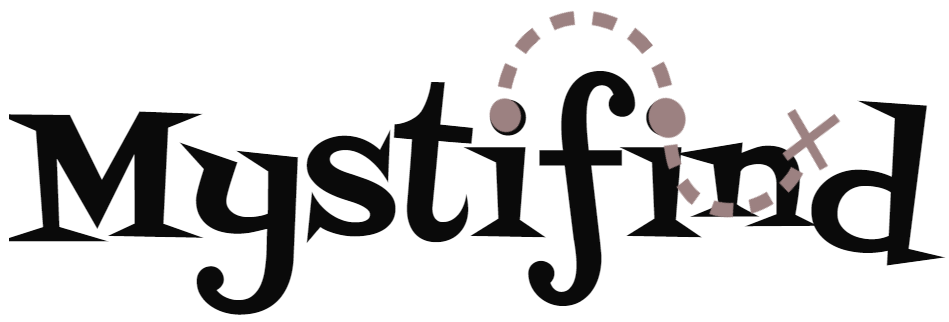
Ever since comic books first hit the shelves, they have sparked a passion in readers of all ages. Superheroes and villains represent larger-than-life characters that we can both identify with and look up to. But why is it that so many people are drawn to these stories? This article explores the psychology behind superhero fandom – how our love for heroes and villains reflects something deeper within us.
By looking at why we gravitate towards superhero stories, we can unlock insights about what makes them so captivating – from their moral dilemmas to their thrilling action scenes – delving deep into the minds of audiences everywhere. So if you’re curious as to why superheroes still hold such sway today despite being around for over 80 years, read on!
Definition Of Superheroes And Villains
Superheroes and villains are characters that have been around for centuries in literature, comics, films, and more. They typically possess superhuman characteristics or powers that make them extraordinary compared to other people. With these traits come certain expectations of heroism or villainy depending on the character’s role within a story.
When defining superheroes and villains, it is important to consider their individual traits. Superheroes often display qualities such as courage, selflessness, responsibility and justice while villains tend to emphasize greediness, selfishness and a lack of morality. Additionally, some superheroes may blur the lines between good and evil by exhibiting both heroic and villainous character traits. These nuances add complexity to each character’s motivations which can lead to interesting plotlines and themes throughout stories featuring either heroes or villains.
It is clear then that both superheroes and villains serve an important purpose in storytelling due to their range of strong moral characteristics. Through these two archetypes, writers can create compelling protagonists and antagonists who highlight different aspects of human nature with entertaining results. While there are similarities between superheroes and villains, their differences provide narrative depth for readers to explore further.
Historical Context Of Superhero Fandom
The history of superhero fandom is a long and varied one. It can be traced back to the dawn of comic books, which first appeared in America in the 1930s. From then on, superheroes have been an integral part of popular culture, inspiring generations of fans across the world. The impact they’ve had on society cannot be understated – they are now some of the most beloved characters ever created.
Villains also play an important role in this history. They provide contrast to our heroes and add complexity to their stories. While these villains may seem like two-dimensional antagonists at times, many have become fan favorites due to their unique personalities or tragic origins. This connection between fans and villains further strengthens superhero fandom as a whole.
Overall, it’s clear that superheroes and villains have shaped pop culture for decades. From comics to movies and TV shows, these characters continue to captivate audiences everywhere with their epic adventures and compelling narratives. As time passes, we are sure that this iconic genre will only become more ingrained into society as its popularity continues to grow exponentially.
Cognitive And Emotional Benefits Of Fandom
This transition from the historical context of superhero fandom to cognitive and emotional benefits reveals how modern fans tap into these characters for personal growth. Superhero fandom provides a unique set of cognitive and emotional benefits that are incredibly rewarding for their devotees.
The first benefit is the sense of belonging and community that comes with being part of a fan base. Joining in on conversations about comics, movies, or other aspects related to the superhero genre gives fans an immediate connection to others who share similar interests. This allows them to feel like they belong within a larger group and can have meaningful discussions with people outside of their traditional social circles. Additionally, many fans also find comfort in connecting over shared experiences such as watching Marvel films together or attending conventions. Thus, superhero fandom often serves as an avenue for forming lasting relationships and finding new friends.
Another benefit that draws people towards superheroes is the opportunity to take on different identities through cosplay or role-playing games associated with comic book characters. By playing out scenarios as their favorite hero or villain, fans get a chance to explore various facets of themselves while engaging in creative outlets such as costume design or acting out scenes from popular stories. This type of imaginative play has been shown to increase problem-solving skills, creativity, empathy and self-confidence – all desirable traits which promote healthy psychological functioning.
Superhero fandom also offers its participants an escape from reality by providing a safe space where they can engage in fantasy worlds without judgement or criticism. Through this medium, individuals gain the freedom to express themselves authentically while exploring themes such as justice and morality at their own pace with no risk involved – something not easily found elsewhere in everyday life situations. In essence, it becomes more than just entertainment; instead, it’s a way for people to understand more about themselves by interacting with symbols rooted deeply in our collective culture’s psyche.
Social Connections Through Shared Interests
Superhero fandom provides an avenue for social connections through shared interests. It can be a great way to meet people with similar values and beliefs, as many superhero fans have a deep appreciation of the characters they admire. Through comic book conventions, online forums, fan clubs and other activities, individuals get to interact with others who share their passion. This kind of connection allows them to express themselves in ways that may not otherwise be possible.
The psychological effects of this type of bond are significant; it gives people a sense of belonging and security. They form strong relationships based on mutual admiration for the same heroes or villains, which is why these groups become so close-knit over time. Moreover, such ties also provide emotional support during difficult times when facing real-life issues. Friendships made through superhero fandom often last beyond the interest itself because they are based on something much deeper than just liking a character in a comic book.
By connecting with like-minded individuals, you can find solace in knowing there are others out there who understand your feelings towards superheroes and villains alike. You no longer feel alone in appreciating what makes them special; instead, you gain strength from your peers’ enthusiasm for the same subject matter. Sharing experiences about comics can help foster meaningful conversations that give insight into different perspectives about life events too – ultimately creating bonds between individuals on an even more personal level.
Cultural Significance Of The Superhero Genre
The superhero genre has been a staple in popular culture for decades, and its cultural significance is undeniable. Superheroes have become iconic symbols of justice, courage, and perseverance. As such, they represent the values that many people strive to uphold. This explains why fans are so passionate about them; it’s not just entertainment—it’s an important part of their identity. In this way, fandom provides a sense of belonging and connection with like-minded individuals who share similar interests and ideals.
Superhero culture also serves as an outlet for creativity, allowing fans to create artwork, fan fiction, costumes and other expressions of appreciation for their favorite characters. Additionally, participating in a fandom can help fans develop self-confidence by providing opportunities to demonstrate knowledge or expertise on their chosen subject. Through these activities and interactions within the fandom community, connections between members deepen which further reinforces feelings of acceptance and camaraderie among fellow enthusiasts.
It’s no wonder then that superhero culture continues to thrive; it offers something that resonates deeply with many people—a place where they feel seen and understood while celebrating something they love. It’s a unique opportunity to express themselves in meaningful ways while connecting with others who share similar passions and beliefs. The psychology behind superhero fandom reveals how deeply connected our identities are to the stories we tell ourselves through shared interests like superheroes – one could say it’s almost superheroic!
The Impact Of Modern Technology On Fandom
Modern technology has had a major impact on superhero fandom. From streaming services to social media, fans now have access to new ways of consuming content and engaging with their favorite heroes and villains. Thanks to the proliferation of superhero-related technology, it’s easier than ever for people to connect with other passionate individuals from all over the world who share their interests in superheroes.
Social media platforms like Twitter, Instagram and Facebook give fans an outlet to share their thoughts about characters and storylines, as well as engage in conversations about current events related to the genre. Additionally, streaming services such as Netflix, Disney+, and HBO Max provide users with an extensive library of movies, TV shows, comics, books and more that they can watch or read whenever they want. This makes it easy for viewers to stay up-to-date with what’s happening in the world of superheroes without having to leave home.
Technology also allows creators to produce content at a faster rate than ever before. Fans no longer have to wait months or years between installments; instead, they can get instant gratification through digital downloads or live streams. In addition, modern technology gives filmmakers unprecedented control over special effects, allowing them to bring even the most fantastical stories to life onscreen. All these factors contribute greatly towards enhancing fan engagement levels across various mediums, making it easier for audiences everywhere around the globe to immerse themselves into the worlds of their beloved superheroes.
Overall, modern technology has revolutionized how we experience superhero fandom by providing us with a wealth of options when it comes to staying connected with our favorite characters and storylines – whether it’s through watching films online or participating in discussions on social media platforms. Technology continues to play an important role in keeping this vibrant community alive and thriving today.
Conclusion
In conclusion, superhero fandom is a phenomenon that has grown in popularity over the past few decades. It provides an escape from everyday life and allows us to explore our cognitive and emotional responses in new ways. Through shared interests among fans of this genre, we can make meaningful connections with others while also recognizing its cultural significance. Modern technology plays an important role in fan culture by providing easy access to content, which further encourages growth and engagement within the fandom. As superheroes continue to gain more mainstream acceptance, it’s clear that their appeal will remain strong for many years to come.
We all have something special about us that makes us unique—whether it be through our love of superheroes or something else entirely. We’re able to express ourselves freely when connecting with like-minded individuals who share similar passions as ours. So why not embrace your inner hero (or villain) and join the ever-growing ranks of those who are passionate about these beloved characters? You never know what kind of amazing experiences await you!






